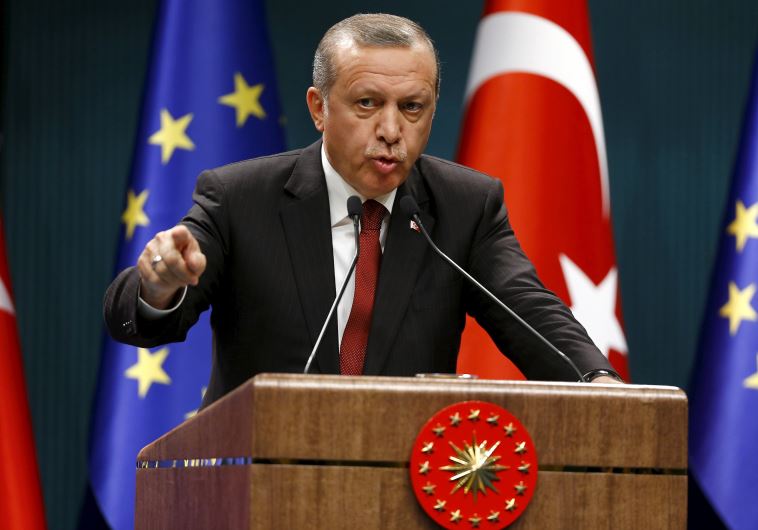EU to begin accession talks with Turkey, offers cash to ease flow of migrants to Europe
Brussels offering 3b. euro, visas, accession talks in exchange for help from Ankara, human rights pushed into the background.
 Turkish President Recep Tayyip Erdogan speaks during a news conference in AnkaraUpdated:
Turkish President Recep Tayyip Erdogan speaks during a news conference in AnkaraUpdated: